

Global Citizenship blog
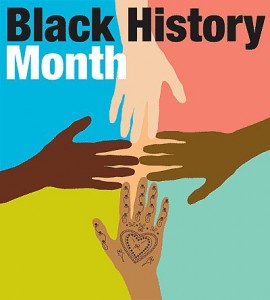 The History of White People by Nell Irvin Painter
The History of White People by Nell Irvin Painter
To mark Black History Month in the UK, a leading African American historian asks why white people became white.
Scottish schools offering Higher and Advanced Higher courses on Civil Rights in the US are being encouraged to attend and already around 50 pupils from schools across Scotland have signed up!
On October 11, Nell Irvin Painter, Professor Emerita at Princeton and Fulbright Visiting Professor in the UK will be giving a public lecture at the University of Edinburgh. Prof. Painter is a leading expert on the history of race and race relations in the US and beyond. Her lecture is titled ‘The History of White People’ and historicises the concept of whiteness in western thought. This is a free, but ticketed event.
Doors open at 5.30pm.
Tuesday, October 11, 2011 from 6:00 PM to 7:15 PM (GMT)
Teviot Lecture Theatre
Doorway 5, Old Medical School
Teviot Place
EH8 9AG Edinburgh
United Kingdom
The University of Edinburgh
Register for this event now at :
http://edinburgh-university-72-rss.eventbrite.com
Please note:
This event may be photographed and/or recorded for promotional or recruitment materials for the University or University approved third parties.
For any further information contact: Anna Moslow, [email protected] or Frank Cogliano [email protected]
More Global Citizenship teaching and learning within ‘Curriculum for Excellence’ can benefit from the thoughtful, selective and informed use of Film. Many teachers will have their students watch chosen extracts or entire movies, films picked carefully which cover themes or narratives which will add to the knowledge and understanding of their students. Working with films also enables students to acquire and deepen skills in research, critical analysis and media literacy, helping them to handle different sources of information, form and communicate informed viewpoints.
Global Citizenship teaching and learning within ‘Curriculum for Excellence’ can benefit from the thoughtful, selective and informed use of Film. Many teachers will have their students watch chosen extracts or entire movies, films picked carefully which cover themes or narratives which will add to the knowledge and understanding of their students. Working with films also enables students to acquire and deepen skills in research, critical analysis and media literacy, helping them to handle different sources of information, form and communicate informed viewpoints.
In Scotland we are lucky to have a number of cinema festivals and venues which enable teachers to work with films about global citizenship issues and films from other countries which offer different and diverse viewpoints.
The Take One Action film festival begins today in Edinburgh and Glasgow and runs for the next two weeks. It offers a wide range of movies about global issues such as land, poverty, climate change, food, conflict and much more. There are documentaries and dramas, and many showings are complemented by themed audience discussions, interviews with film-makers and NGOs, etc. I’ve picked out just three of the films on offer, which may have particular use in school: ’Fezeka’s Voice‘, about an inspirational teacher and musicians from South Africa; ‘Blood in the mobile’, about child labour and mineral extraction in Congo; and ‘There once was an island’, about climate change in Polynesia. For full details of the films show dates and associated activities, check the Take One Action website.
Independent Film venues often host parts of such annual film festivals, but also run their own extensive programmes of film showings which expose teachers and students to alternative perspectives. Glasgow Film Theatre, Edinburgh’s Filmhouse, and Dundee Contemporary Arts are all active in this regard, and teachers should contact their nearest venue for advance programme details which may include special showings for schools (with associated educational elements) or teacher CPD sessions.
These independent venues are also imaginative in working with partners to develop their own festivals and seasons of films which focus on a particular theme. Two examples:
- Filmhouse hosts the ‘Africa in Motion’ festival in early November, running a series of films and events which deal with the lives and issues of young people in Africa. The films include shorts, animations, fiction and documentaries.
- The Discovery Film Festival takes place at DCA in Dundee, and its schools programme runs from 22nd October to 6th November. There are teacher CPD sessions alongside the film programme.
Many venues also take part in National Schools Film Week, which for Scotland in 2011 will be from 27th October to 4th November.
MoreWe are delighted to offer you a free Global Citizenship calendar containing major events and dates to help you plan rich and stimulating learning experiences across the curriculum throughout the year.
Go to Global Citizenship calendar 2011/12 and download the pdf version or email [email protected] to request a printed (A2) version.
An exciting online version of this calendar connecting you to support materials for each entry will soon be available on the Education Scotland website (http://www.ltscotland.org.uk/ ). So, whether you are planning learning around religious festivals, Holocaust Memorial day or World Environment Day, the Global Citizenship calendar will point you in the right direction.
More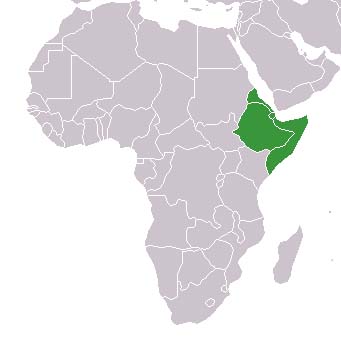 The current humanitarian crisis in the Horn of Africa, with famine threatening hundreds of thousands of people in Somalia, Kenya and Ethiopia, is already stimulating a response in Scottish schools. Many teachers and students are involved in fundraising to support charitable efforts which address this situation and save lives. As they do so, they are discussing key issues about global poverty, development, aid, inequality, and climate change. For teachers who would like a bit of extra support to teach in this area of global citizenship, here’s a few suggestions:
The current humanitarian crisis in the Horn of Africa, with famine threatening hundreds of thousands of people in Somalia, Kenya and Ethiopia, is already stimulating a response in Scottish schools. Many teachers and students are involved in fundraising to support charitable efforts which address this situation and save lives. As they do so, they are discussing key issues about global poverty, development, aid, inequality, and climate change. For teachers who would like a bit of extra support to teach in this area of global citizenship, here’s a few suggestions:
The Edinburgh Disasters Response Committee and Mercy Corps have produced an education pack to help teachers cover this crisis and support the fundraising appeal. It’s available to Scottish teachers through the national Glow Group for International Education
Charities such as Christian Aid are providing frequent updates about their aid work, including personal reports from local people and aid workers.
The Oxfam Education resources on the ‘world food crisis’ , and their Grow campaign, provide additional material for discussion for subjects such as food supply, sustainable farming, and agricultural trade.
And the Department for International Development website gives news about the official emergency relief efforts to combat starvation in the region. This includes eye-witness reports and case studies. The eradication of poverty and hunger is the first of the UN Millennium Development Goals, and continues to be a major challenge.
More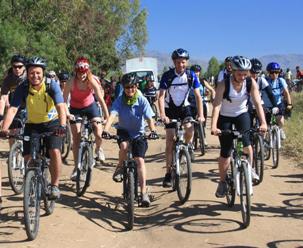 Global citizenship activity comes in many shapes and sizes, but one of the most common variants involves teachers making a personal voluntary contribution to educational development in another country. Teachers are able to use their professional skills to assist growth and school improvement, and gain a much greater understanding of key global issues (such as sustainability) and of Scotland and its place in the world.
Global citizenship activity comes in many shapes and sizes, but one of the most common variants involves teachers making a personal voluntary contribution to educational development in another country. Teachers are able to use their professional skills to assist growth and school improvement, and gain a much greater understanding of key global issues (such as sustainability) and of Scotland and its place in the world.
Over the academic year and summer vacation of 2011 there will have been hundreds of teachers and students involved in school partnership work in sub-Saharan Africa. Because of the historic links between the two countries, and the efforts of charities such as the Scotland Malawi Partnership, many of these partnerships are between schools and communities in Scotland and their counterparts in Malawi. For example:
Glasgow City Council has become involved at authority level to share its expertise with a region of Malawi, working with charity Link Community Development in a new project called Malawi Leaders of Learning. This week’s Times Education Supplement Scotland article, titled ”the warm heart of Africa“, reports on the new partnership and the visit to Malawi of Glasgow’s Director of Education. This new relationship builds on a base of strong existing partnerships between some schools in Glasgow and Malawi and the work of participants in LCD’s ‘Global Teachers’ programme.
Link Community Development also took some teachers to Malawi this July as part of a fundraising initiative called Bike Ride 2011. A group cycled through large parts of the country, staying in local communities as they travelled and visiting education projects supported by LCD funding. The experience is described online, and one of the cyclists blogged about his experience. The Courier newspaper published an article about a local Perth participant. The charity is already recruiting bikers for 2012.
More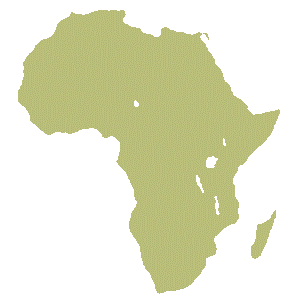 Hundreds of Scottish schools are involved each year in fundraising with charities that are active in Africa, and many have a partner school which is the focus for this activity. The money raised enables development in the southern partners, and exposes Scottish students to some of the realities and inequalities of life in other countries. Our young people get engaged with issues of global citizenship and become active contributors to a better world.
Hundreds of Scottish schools are involved each year in fundraising with charities that are active in Africa, and many have a partner school which is the focus for this activity. The money raised enables development in the southern partners, and exposes Scottish students to some of the realities and inequalities of life in other countries. Our young people get engaged with issues of global citizenship and become active contributors to a better world.
This week’s Times Educational Supplement Scotland has two news pieces about Scottish schools’ achievements with enterprise, fundraising and African engagement.
- Stonelaw High School in South Lanarkshire won the ‘Young Persons’ category in the annual UK-wide ‘Social Enterprise Awards 2011′. Enterprising work in areas such as Fairtrade generated large amounts which the school used to support the education of AIDS orphans in a deprived area of South Africa.
- Kemnay Academy in Aberdeenshire has been raising funds with the Scottish charity ’500 Miles’, which provides artificial prosthetic limbs for disabled people in several countries in sub-Saharan Africa. Students took part in a charitable challenge initiative developed by a local company, which provided additional support and business expertise.
More The theme of ‘Water’ is often used by teachers to get students thinking about global inequalities. The Oxfam Water Week initiative, 13th-19th June in Scotland, encourages students to explore this key aspect of the world they live in and take action to make a positive change. A Teacher pack is available to staff who register on the website, and provides news stories, resources and ideas to facilitate activities in school.
The theme of ‘Water’ is often used by teachers to get students thinking about global inequalities. The Oxfam Water Week initiative, 13th-19th June in Scotland, encourages students to explore this key aspect of the world they live in and take action to make a positive change. A Teacher pack is available to staff who register on the website, and provides news stories, resources and ideas to facilitate activities in school.
Another charity, Wateraid, focuses on the provision of clean safe water supplies for some of the poorest people on the planet. Their website also has resources for teachers and learners, include documentary video clips.
In March the annual World Water Day 2011, promoted by the United Nations, helped to raise awareness of issues about water supply, climate change and natural disasters. National and local campaigns were complemented by educational activity in some schools.
Water supply has a significant impact on achievement of the Millennium Development Goals, in particular on child health, universal education, poverty and hunger.
More Fairtrade Fortnight 2011 runs from 28th Feb to 13th March.
Fairtrade Fortnight 2011 runs from 28th Feb to 13th March.
This year the Fairtrade Foundation is asking the nation to show off about buying Fairtrade which offers 7.5 million people in the developing world a more secure future. The fun-filled fortnight has been launched just as figures reveal that Fairtrade sales amounted to over £1 billion in 2010, and increase of over 40% on the previous year.
You can show off Fairtrade any way you want. Take part in a bunting record attempt, hold a fashion show with your friends, or be loud and proud about how your school supports farmers and workers in developing countries.
So it is time to get inspired and get ready to Show Off Your Label.
Find out more about Fairtrade Fortnight >>
Get involved in the campaign to make Scotland a Fairtrade Nation >>
Become a Fairtrade school and embed issues about trade justice into your curriculum >>
More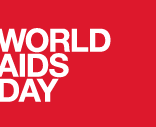 This week the annual World AIDS Day was commemorated around the world, and some educators use the occasion to raise awareness with students about the Health issues and about combating prejudice associated with the disease.
This week the annual World AIDS Day was commemorated around the world, and some educators use the occasion to raise awareness with students about the Health issues and about combating prejudice associated with the disease.
The Department for International Development (DfID) website has a feature news story about current initiatives, with a particular focus on Sub-Saharan Africa.
The British Red Cross produced an online educational asset about challenging discrimination and stigmatisation, to support teachers who cover this theme with their students; And Christian Aid offers an assembly resource for secondary teachers covering issues of disease and infection with their students.
More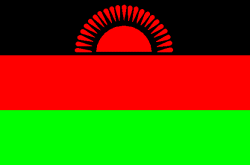 This week is the fifth anniversary of the Co-operation agreement between the governments of Scotland and Malawi, and there will be events around Scotland to recognise the mutual benefits of the relationship.
This week is the fifth anniversary of the Co-operation agreement between the governments of Scotland and Malawi, and there will be events around Scotland to recognise the mutual benefits of the relationship.
Link Community Development has celebrated its years of educational work in Malawi, which included more than fifty Scottish teachers making a personal contribution of time and expertise in a Malawi primary school, at a reception in the Scottish Parliament. LCD worked with Learning and Teaching Scotland, and utilised funding from Scottish Government, to part-fund programmes to develop primary education practice in Malawi and Uganda. These ‘Global Teachers’ have made a significant impact in their Scottish schools, as their African experience enables them to model ‘Global Citizenship’ behaviour and encourage their students to act as responsible thoughtful global citizens.
An article in Times Education Supplement Scotland “Malawi co-operation agreement pays off for pupils and teachers” gives some background to developments and speaks to teachers about the gains and the challenges.
A Scottish Government news release describes the success of one of the education programmes supported with Scottish funding, a Teacher Training programme (TESSA) for women in sub-saharan Africa.
The Scotland Malawi Partnership brings together a number of organisations and charities which focus on development activity in the country.
More
Find us on